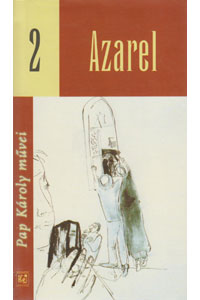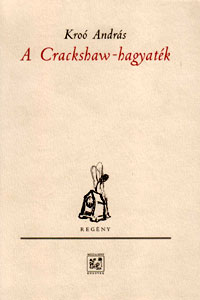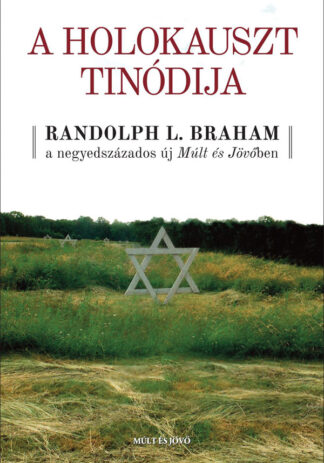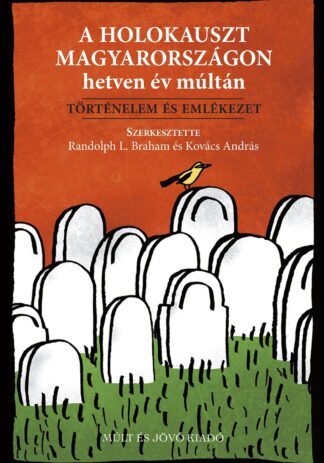Leírás
THE AZAREL stories are at times even more pitiless in depicting the child’s psyche and reach toward even greater depths than the novel. On this note we might quote Zsigmond Móricz, of the greatest Hungarian writers of the early twentieth century and a great admirer of Pap: Three of Pap’s stories are perhaps his most beautiful: Mercy, Children, and Blood. Each concerns the child’s psyche, indeed each represents the most sincere confession imaginable of a child’s heart not yet dulterated by the human culture he inhabits. These stories can even can form the basis of psychoanalytic research, so astounding is the piercing clarity with which Pap remembers the experiences of THE AZAREL STORIES Károly Pap’s novel Azarel saw international success in short order after its English-language publication in the United States in 2000 (Steerforth Press). Since then it has appeared in German, Dutch, Hebrew, and French, with a Spanish edition due before long. From the New York Times to the Frankfurter Algemenie Zeitung, it has netted considerable critical acclaim as well. Reviewers promptly situated Pap in the ranks of those Hungarian writers the world has become familiar with in recent years, including Sándor Márai, Béla Zsolt, and Antal Szerb, and American critics also drew comparisons with Franz Kafka, Bruno Schultz, I. B. Singer, and the young Vladimir Nabakov.
In his short lifetime Pap, who perished in the Holocaust, produced two other novels, numerous short stories, and four plays that have understandably stirred the curiosity of his readers-readers who, after reading Azarel, have grown fond of Pap’s unique style and thematic concerns rooted in the deepest questions of the Jewish fate and Jewish identity. And they have likewise come to love the hero and title character of Azarel: Gyuri (or Gyurka) Azarel, that dreamy, pitiless, stubborn, tenacious, rebellious child. And this is why Múlt és Jövő – which has published all of Károly Pap’s works in Hungary and holds the rights-believes that the next work that will transport his readers into this extraordinary world can only be a novel whose every line was written by Pap. And yet never in the writer’s lifetime did such a novel appear in print.
In fact, it is a choice and coherent selection of Pap’s stories that amounts to a new „Azarel novel.” During his lifetime the author expressed a desire to further elaborate on this theme; and indeed he did pen numerous stories to this end. These short works represent the pieces, the „chapters” that in effect constitute the novel he never did actually write. Some of these stories allude to this relationship by way of their titles and the name of the protagonist. Others were written in the first person singular and depict the same (rabbi’s) household in a provincial town and the same characters in this household as does Azarel the novel. Yet other stories introduce the ten-year-old Gyuri Azarel – in the village atmosphere where Azarel’s mythical hero, Papa Jeremiah was from. The final stories of this „novel” trace the protagonist’s journey to World War I and beyond, to his vagabond days. The last story in the cycle, Azarel Arrives in Budapest, portrays a young, alienated revolutionary who has broken with his father’s home even as an adult and has arrived in the Hungarian capital to embark on his literary career.
childhood; this is a clarity beyond the distancing filter of the impressions one subsequently acquires in the course of schooling and of being raised. Even the greatest writers perceive childhood through a veil; not even Goethe could remember his original instincts. One subconsciously creates a fake copy of his first act of sedition, fashioning it in a form he’d wish upon his own child. Here Károly Pap explores depths hardly traversed by anyone before him.
This book has been compiled by János Kőbányai as the „Bildungroman” of Károly Pap’s hero, Azarel. It contains an afterword titled Károly Pap and Azarel, in which Kőbányai compares the life and background of the writer – including Pap’s hometown of Sopron, that small historic city in western Hungary, in the first years of the twentieth century; and the writer’s father, Miksa Pollák, who was not only a leading rabbi of the era but a writer himself-with that of the fictional hero Gyuri Azarel. Kőbányai examines Pap’s literary reception and literary relationships during his lifetime, the long period of post-Holocaust silence that descended on him and his works, and the factors behind the sudden international success that began with Azarel’s U.S. publication. He further addresses the linguistic and philosophical aspects of Azarel the novel, the character, and the theme-in particular, the conflict between (Jewish) minority identity and a universalist perspective, and its unparalleled realization in the oeuvre of Károly Pap.
Károly Pap: The Azarel Stories (Compiled, and with an afterword, by János Kőbányai)



